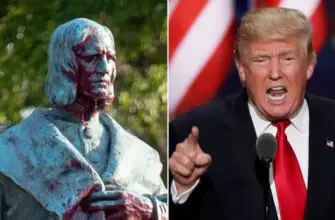A contentious debate unfolded on the House floor Thursday over the Safeguard American Voter Eligibility (SAVE) Act, a measure intended to bolster election security but met with significant opposition from within the Democratic party.
The core of the legislation would mandate proof of citizenship for voter registration, moving away from the current system where an affirmation of U.S. citizenship on a form suffices. Acceptable documentation includes passports, government-issued photo identification, birth certificates, and other recognized forms—requiring only one to be presented.
Arguments Against the SAVE Act
- Several Democrats voiced concerns that the bill would disproportionately impact vulnerable populations.
- Rep. Laura Friedman (D-Calif.) characterized the act as a “modern-day poll tax, targeting American women and low-income Americans.”
- Rep. Nikema Williams (D-Ga.) argued it could impose substantial financial burdens on voters—potentially exceeding $700 million in her state—effectively functioning as a “poll tax” and violating the 14th, 19th, and 24th Amendments. She stated: “Voter suppression by any other name is still voter suppression.”
- Concerns were raised that it could create difficulties for women who have changed their names after marriage.
Arguments in Favor of the SAVE Act
- Proponents assert the bill would provide an additional layer of security against noncitizen voting, safeguarding the integrity of elections.
- Rep. Lauren Boebert (R-Colo.) challenged the argument regarding women’s access to voting, questioning its validity and playfully suggesting a discussion on the definition of “woman.”
- Supporters emphasized that current law already prohibits noncitizens from registering to vote, making the legislation an additional safeguard protecting over 150 million Americans.
- Rep. Chuck Edwards (R-N.C.) dismissed the concern about impacting married women’s voting rights, stating the bill includes provisions for addressing name discrepancies and requiring only one form of identification. He added, “The SAVE Act directs states to establish a process for discrepancies… This bill lists forms of identification that a voter could provide… but that voter only needs to provide one document.”
Rep. Sara Jacobs (D-Calif.) expressed reservations about the practical implications, noting potential difficulties in obtaining required documentation like birth certificates or passports and questioning whether the act addresses an existing problem.
The legislation enjoys support from former President Donald Trump, who recently signed an executive order aimed at similar election reforms.
While the bill passed the House last year with Republican backing and limited Democratic support, it failed to gain traction in the Senate. It’s expected to encounter significant obstacles as it returns for consideration.
The vote saw unanimous support from Republicans present, alongside Democrats Ed Case, Jared Golden, Henry Cuellar, and Marie Gluesenkamp-Perez. The bill is championed by Representatives Chip Roy (R-Texas) and Senator Mike Lee (R-Utah).







